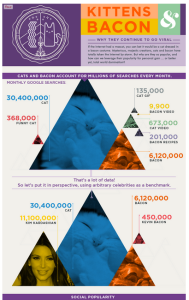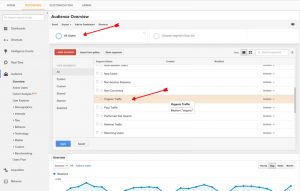Simply Elegant Glass has been selling hand-crafted sex toys on Etsy for nearly a decade. In that time, the shop has made over 7,000 sales and racked up more than 1,500 mostly five-star reviews. The Etsy shop — which offers glass dildos, anal plugs and other insertable items — drives the majority of the small business’ overall sales. But as of Monday July 29, the bulk of the shop’s catalog won’t be allowed on the marketplace anymore under Etsy’s new restrictions around sex toys.
The Adult Nudity and Sexual Content policy, which was quietly published at the end of June to the platform’s “House Rules,” states that “Etsy prohibits the sale of adult toys that are: inserted into the body; applied to the genitalia; designed for genitals to be inserted into them.” Among other things, it specifically forbids vendors from selling “dildos, vibrators, anal plugs, sex dolls and fleshlights.” The policy update, spotted first by Mashable, came in tandem with a community forum post by Etsy’s head of Trust & Safety, Alice Wu Paulus, who wrote that it was designed to reflect “evolving industry standards and best practices so that we can continue to keep our users safe.”
The note about the impending change said Etsy would, in the coming weeks, “communicate directly with sellers who may need to update their listing images to be compliant.” Enforcement would begin on July 29, it said, and non-compliant listings would be removed. But up to three weeks after the new policy was published online, sellers that spoke to Engadget said they were never contacted directly by Etsy. All of them found out about the ban through social media or other means.
Etsy did not answer specific questions about the reasons behind its decision when contacted by Engadget, but a spokesperson said the change will only affect a very small percentage of the platform’s overall seller community. The only explanation stated in the policy change itself notes that the site wants to ensure “content is appropriate for a wide audience.”
It’s been received as the final nail in the coffin for many adult-oriented businesses on Etsy. Multiple sellers described the preceding years to Engadget as a fight to exist and succeed on the platform. And with no alternative marketplace for handmade products currently operating at Etsy’s scale, it feels as though the only venue for finding such items has been “essentially deleted off the internet,” said Andy, a glassblower for Simply Elegant Glass who chose to share only their first name.
“If I want to find products that are handmade — unless I knew of their existence beforehand through Etsy — finding them is incredibly difficult,” Andy said. They said they found advertising on Google to be “prohibitively expensive,” and products from small businesses are often buried in search results. If a person were just searching by product type, “I don’t think you would be able to find [Simply Elegant Glass] on Google,” Andy said.
Simply Elegant Glass launched its own website a few years ago and recently migrated to Shopify in an effort to shift away from its reliance on Etsy, but said in a recent post on X that even still, “most of our traffic originates from Etsy searches.”
As they see it, Andy said the platform has trended toward “allowing more dubious sellers, people who do not actually make the toys, dropshippers” and shops that would otherwise seem to “fly in the face of [Etsy’s] policies.” Dropshipping is an increasingly common practice in which businesses sell products they don’t actually make or even keep in stock themselves — instead, they source these items from a third-party supplier once they’ve received the orders, and the suppliers will ship them to the customers. Etsy has said that dropshipping is not allowed on the platform under most circumstances, but dropshippers have still found a way.
In addition to sex toys, Etsy’s new policy prohibits the sale of all pornography, including vintage Playboy magazines and any photographs or photo-realistic depictions of sex acts and genitalia. Non-realistic artworks featuring sex acts or genitalia may be permitted, but only under certain conditions: if sex acts are shown, there can be no visible genitalia; if genitalia are shown, there can’t be any “sexual context.” Any materials that feature a combination of familial and sexual terms, e.g., “slogans such as ‘Daddy’s slut’ or ‘Choke me Mommy,’” are out, too. Etsy will, however, continue to allow certain sexual accessories, like some BDSM gear and sex furniture.
Sellers that spoke to Engadget questioned why Etsy couldn’t solve issues of safety with methods other than a ban, like creating a designated adult-only section to keep these materials from popping up in inappropriate places.
The marketplace is one that sellers and shoppers alike have come to rely on for bespoke sex products. Etsy “is really the only place you can go that I know of to support small business/makers in the alternative product world,” Alissa Milano, an Etsy patron who has purchased sex and kink products on the platform, told Engadget in a DM.
On top of discoverability, the intuitive user interface makes it easy for shops to create listings and offer customization options, and it gives potential buyers a way to get in touch with a seller if they have any questions before placing an order. “I talk to most of the customers,” said Daniel Tyler, who runs the UK-based adult site Secret Kink, and sells on Etsy under the name of SecretLatex. Often, he says, “they want little changes here and there. If you’re buying on Amazon, you won’t get that.” And because it costs so little to list products on Etsy — $.20 per listing — it’s “probably the most accessible place to sell something,” said Chelsea Downs, founder of New York Toy Collective. Emerging indie marketplaces like Spicerack that are trying to provide a better option for sellers in the adult space are a promising development, but they don’t yet have the reach or name recognition of Etsy.
Even before the ban, though, adult product sellers say they’ve grappled with account suspensions and seemingly arbitrary listings removals, despite their best efforts to comply with Etsy’s existing rules around mature items. Or, their shops would plummet in the search ranks and be unable to climb back up. “It just gets worse and worse and worse,” said Downs, who notes that her shop’s sales on the platform are not nearly what they once were.
Tyler says his Etsy shop was banned about six or seven years back for unknown reasons. “I couldn’t get the shop open, no one would respond,” he said. He rebranded and returned to the platform a few years later, and has so far been “safe,” but says, “I get various warnings about policy violations every other week.” The current Etsy shop sells latex and rubber kinkwear as well as dildos, silicone penis sleeves and gender expression products such as packers — prosthetics meant to mimic the bulge of a penis and testicles that can be worn under clothing. Some of his listings won’t be allowed under the new rules.
Etsy sales accounted for 50 percent of Secret Kink’s turnover last year, and 30 percent the year before that, Tyler said. “I always said to my partner that I’m worried that any day… they’re just going to close my store down,” he said. Amid the economic struggles small businesses are already dealing with, Tyler says the platform’s latest move is “just another kick in the teeth.”
Both Tyler and Downs also expressed concerns about how the changes could affect shoppers’ access to gender affirming products. Downs’ shop, which has made over 12,000 sales in its seven years on Etsy, also sells a mix of pleasure and gender expression products. According to an Etsy spokesperson, items like packers that would be classified as prosthetics and not toys (i.e. not intended for sexual acts) are still permitted, along with some sexual wellness products.
The overhaul at Etsy comes on the heels of age verification laws that have begun to gain traction in the US, with the stated intent of shielding minors from adult content on the internet. In recent weeks, Pornhub has pulled out of several states that have enacted or are trying to push forward with such legislation, rather than comply with verification methods that could pose a privacy risk to the site’s users. And sex was already a tough sell for online businesses prior to this movement. Payment processors, like PayPal and Stripe, have historically taken a harsh stance on the sale of sex-related products and sexual content (remember when OnlyFans tried to ban porn to appease the banks?).
Whatever Etsy’s reasoning, affected sellers say they’re bracing for industry-wide impacts. Matt Rowe, one of the owners of the fantasy sex toy shop Odyssey Toys said in an email that it’s going to be a “devastating blow for so many” artisan makers. “There’s some extremely talented people driving innovation and creating some incredible work through their designs, and for many of them their business may have the rug pulled out from underneath them almost overnight.”
Rowe said he considers Odyssey “one of the lucky ones” because Etsy currently accounts for only about 20-25 percent of the business’ sales — but the potential impact on the team of owners and workers, plus their families, is still “really worrying.” Odyssey moved into a bigger office earlier this year, and brought on new staff members, Rowe said.
With no word from Etsy in the aftermath of its decision, many sellers said their future right now feels uncertain. “We’re left wondering if our account will be deactivated? Restricted? Or will they just remove our products? Who knows!” Rowe said.
Selling sex toys may have put a target on their backs, but the affected sellers warned that there are broader issues plaguing Etsy that will continue to affect even the small businesses that don’t carry mature products. Their gripes include being “dinged” in search rankings for not offering free shipping, and having to navigate a playing field that’s changed immensely with an influx of dropshippers, mass-produced products and AI art. “This idea of a handmade marketplace no longer exists,” said Downs.
In July, Etsy updated its seller handbook with new categories to reflect what it says belongs on the platform, loosening its grip on the “handmade,” “vintage” or “craft supply” categories that listings were once required to fit into. Now, shops can choose to label their products as “made by a seller,” “designed by a seller,” “sourced by a seller” or “handpicked by a seller.”
(4)
Report Post






